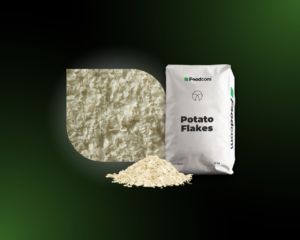Resumen
Índice
Europe
Irish farmers are very concerned about the European Parliament’s pesticide proposals
The new regulations limit the permissible level of pesticide residues in food. Irish farmers are expressing concern about the impact on upcoming harvests and are calling on their own government to intervene. They also stress that the new regulations could significantly worsen the global food crisis.
Scientists are studying the genes responsible for herbicide resistance
A team of scientists from the United States and several research institutions in Europe is working to identify a genetic trait in weeds that increases their resistance to herbicides. Results so far suggest that metabolic resistance, a combination of several changes in the plant that makes it resistant to herbicides, is responsible. The researchers believe their findings will enable better and more effective weed control.
France restricts use of a herbicide
The French health and safety agency ANSES is halting some uses of one of the most commonly used herbicides in the country, S-metolachlor. The reason for the decision is the registration of excessive levels of the substance in groundwater. The chemical’s manufacturers and farmers are naturally unhappy about this decision. Anti-pesticide activists, on the other hand, are cheering. And the weeds, of course, too.
The Americas
Fertilizer manufacturers face a difficult quarter
Fertilizer companies Nutrien Ltd, Mosaic Co and CF Industries are likely to face a challenging time. Last year, fertilizer prices rose sharply around the world after sanctions were imposed on key producers Russia and Belarus. At the same time, electricity prices rose, forcing farmers to curb their spending on fertilizers, leading to a decline in demand. A similar trend could continue for a while, but it should not be forgotten that fertilizers are essential for the production of many crops. For this reason, there will always be (at least some) demand.
Bayer is in trouble
Brazil’s Supreme Court has ruled that Bayer must pay back $252 million in royalties from GMO soybeans. Brazilian farmers had argued that the company had collected royalties on an expired patent. The company said it will carefully review the ruling and plan its next steps, but intends to abide by the ruling. Bayer has the right to appeal the ruling.
U.S. farmers are subject to a shortened deadline for the use of the chemical dicamba
The use of this chemical has been criticized for some time because it spreads uncontrollably after application and damages plants that have not been genetically modified to increase their resistance. The shortening of the application period is intended to curb the spread of dicamba, but it will certainly make farmers’ work more difficult.
Asia & Oceania
Indian fertilizer manufacturer Deepak Fertilisers and Petrochemicals will partner with Novatek
The companies have signed a non-binding memorandum of understanding for the supply of liquefied natural gas and ammonia. The companies will cooperate on both a spot and long-term basis. The main focus will be on the sale of hydrogen and ammonia.
KPP Powers Commodities Inc. is testing a vaccine against African swine fever
A Philippine distributor of feed additives and animal health products has partnered with the country’s Department of Agriculture to test a Vietnamese vaccine against African swine fever. The formulation used was manufactured by AVAC Vietnam JSC. The vaccine is in the implementation phase under field conditions monitored by Vietnam’s Ministry of Agriculture and Rural Development.
China will expand industrial use of genetically modified corn and soybeans
China is expected to plant 4 million mu (267,000 hectares or 660,000 acres) of genetically modified corn varieties this year in a large-scale trial. Although genetically modified food crops have been researched in the country for decades, they have not been approved for commercial use because of public distrust of the technology. Now the government is increasingly supporting their use to ensure China’s food security.
Categorías:







